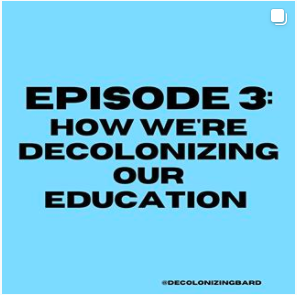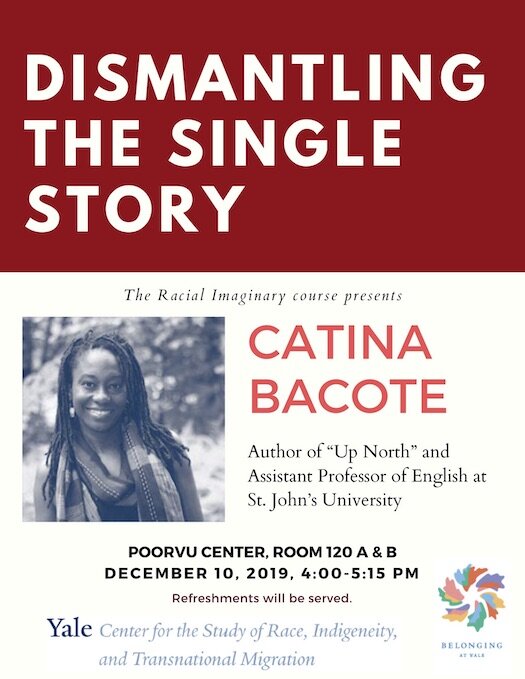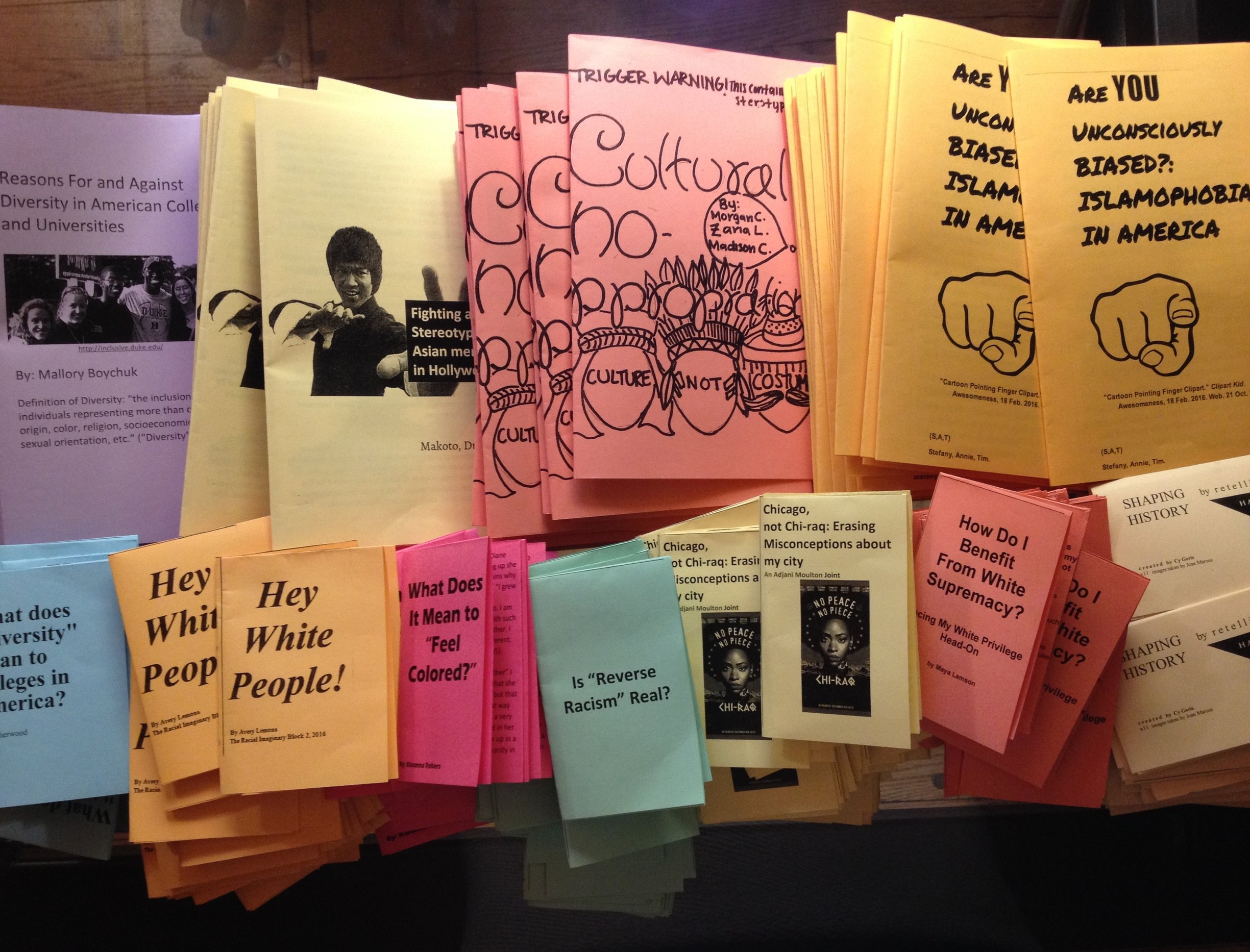Since 2001, when I first worked with students at Breakthrough: New Orleans, I’ve taught in Hong Kong, New Haven, Mississippi, New York, and Iowa, and at the university level for almost two decades. Coursework at Brooklyn College, the Bard Institute for Writing & Thinking, the People’s Institute for Survival & Beyond, and the New York Collective of Radical Educators shapes my pedagogy, as do former students at The New School, Bard HS Early College, the University of Iowa, Cornell College, Brooklyn College, Brooklyn College Academy High School, the New York City College of Technology, and Yale. I won the University of Iowa’s Outstanding Teaching Award, and was subsequently the Provost’s Visiting Writer at the University of Iowa and Cornell College’s Robert P. Dana Fellow. My book Feels Like Trouble: Provocations on Writing, Teaching & Power is forthcoming from the University of New Orleans Press.
An inquiry-to-action model guides my current teaching. Students in one class at Bard High School Early College Queens created a podcast and syllabus for decolonizing their education; in another class, they co-edited a Writing & Thinking week anthology on dismantling dominant narratives. New School students in my Racial Imaginary course designed their final projects around a manifesto they wrote and elaborated upon online. At Yale, students wrote personal essays aimed at dismantling “single stories” about their communities; they published these online and in print, in conjunction with a community event where they hosted the writer and New Haven native Catina Bacote. Most recently, students in The House That Race Built created a zine where they reckoned with the gifts and constraints of identity. You can hear me discussing some of these methodologies with some amazing fellow faculty here.
At Cornell College, students wrote and distributed zines about race to the college community, available online.
I’ve written about teaching in Literary Hub, The Chronicle of Higher Education, Poets & Writers, and The Millions, and for NYCoRE’s Write On! Writing for Social Justice, and I have facilitated pedagogy workshops for student teachers at Brooklyn College and the Levinsky College of Education. I have presented on ungrading at The New School’s Faculty Center, on new student feedback models and on student voice and power at the annual AWP Conference, and on teaching toward justice at NonfictioNOW.
Readings about education that have influenced me (and which I often discuss with students) include Zoé Samudzi’s “We Need a Decolonized, Not a ‘Diverse,’ Education,” Lee A. Tonouchi’s “Da State of Pidgin Address,” Liz Lerman’s Critical Response Process, John Taylor Gatto’s “Against School,” Peter Elbow’s “The Process of Writing: Growing” and “The Music of Form,” Alfie Kohn’s “The Dangerous Myth of Grade Inflation,” and BFAMFAPhD’s Making and Being.
I currently teach courses in experimental essays and creative inquiry at Eugene Lang College at The New School, and collaborate with the Poetry Project to offer first-year students an experience of art and archival re-writing. Previous courses include Composition, Rhetoric, Writing Against Inequity, The House That Race Built, The Racial Imaginary, Deconstructing Whiteness, Personal Writing, Food Writing, The Art & Craft of Creative Nonfiction, Writing Fiction I & II, Introduction to Creative Writing, and Literature of Ethnicity & Migration, plus extracurricular workshops in radical revision, warping time (a prosaic possibility!), writing the open letter, zine-making, readings in decolonization, and unpacking Peggy McIntosh's “invisible knapsack” of privileges.
I also coach writers and scholars at all stages of their careers; feel free to be in touch.
Students and colleagues appreciate my Radical Revision worksheet, which you’re welcome to download & share.
[archive: In February of 2016, my nonfiction students at the University of Iowa published “16 Ways of Looking at a Caucus.”]



